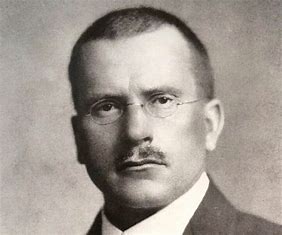INFJ personality types are compassionate and quietly inspiring; they enjoy helping others grow and develop.
Note: This is a resource page on ESFJ - there are 16 Types of MBTI personalities. Find out which are you. This resource page is frequently referred to in our MBTI Teambuilding Workshops to help participants get more information about their MBTI Type.
The Myers-Briggs Type Indicator identifies 16 personality types, including INFJ (MBTI). If you have an INFJ personality type, it means you are introverted, intuitive, feeling, and judging. People with this personality type, also known as the “Advocate” or the “Idealist,” frequently feel misunderstood.
Famous INFJ People

One of the most famous INFJ persons is none other than Carl Jung, the Swiss psychologist who developed the Myers-Briggs Type Indicator test. He founded analytical psychology. Jung is best known for his theory of the collective unconscious, which postulates that humans share a universal psychic structure.
Perhaps it’s because INFJ is the most uncommon MBTI personality type, accounting for only 1% to 3% of the population in the United States.
Or maybe it’s because they’re walking around and saying contradictory things.
INFJ Key Characteristics
If you are an INFJ, you are more likely to exhibit certain characteristics. These characteristics are as follows:
INFJs can be soft-spoken and empathetic due to their strong intuition and emotional understanding. This does not imply that they are cowards. INFJs have strong beliefs and the ability to act decisively to achieve their goals.
While introverts by nature, people with the INFJ personality type can form strong, meaningful connections with others. They enjoy assisting others, but they also require rest and relaxation.
Idealist: What distinguishes the INFJ is their ability to put their ideals into action. They don’t just wish to change the world; they make it happen.
INFJ personality types prefer to exert control by planning, organizing, and making decisions as early as possible.
Emotional as well as logical: INFJs prioritize their emotions over objective facts when making decisions. However, this does not imply that they see the world through rose-colored glasses. INFJs understand the world, both the good and the bad, and hope to improve it.
INFJ Strengths
INFJs enjoy creating a shared vision for everyone, inspiring others, and coming up with new ways to achieve the vision.
INFJs’ potential development areas
INFJs may appear to others as individualistic, private, and mysterious, and they may think in a vacuum, resulting in an unrealistic vision that is difficult to communicate.
Personal Relationships with INFJs
INFJs have a gift for language and are usually very good at expressing themselves. They have a vivid inner life that they are often hesitant to share with others, with the exception of those closest to them. INFJs can be good leaders despite their quiet and sensitive nature. Even when they do not assume overt leadership positions, they frequently act as quiet influencers behind the scenes.
INFJs are motivated by strong values and seek meaning in all aspects of their lives, including their relationships and work. People with this personality type are frequently described as deep and complex. INFJs may not have a large circle of friends, but their close friendships are unusually close and long-lasting.
INFJs care about others and want to make the world a better place. They are good listeners and interact well with people to whom they are emotionally close and connected. While they care deeply about others, INFJs are introverted and prefer to share their “true selves” with a small group of people. INFJs require time alone to “recharge” after being in social situations.
Compatibility with INFJ
The most compatible MTBI personality types with INFJ are ENTP and ENFP. ISTP and ESTP personality types are the least compatible with an INFJ.
INFJ Career Options
INFJs thrive in jobs that allow them to express their creativity. People with INFJ personalities excel in jobs that support their deeply held convictions and values because they have such strong convictions and values. INFJs thrive in jobs that combine their need for creativity with their desire to make a positive difference in the world.
INFJs are high achievers who excel in both academics and the workplace. They can be perfectionists and put in a lot of effort in their work. Coworkers perceive INFJs as hardworking, positive, and easy to get along with. However, because they are introverted, they may need to retreat from time to time to recharge.
INFJs can struggle to assert authority in managerial roles. They are good at making subordinates feel appreciated in the workplace and tend to lead with sensitivity. Jobs that require a lot of routine or strict adherence to rules can be difficult for INFJs.
INFJs frequently prefer to work for organizations with a humanitarian mission and a strong reputation for integrity. They enjoy developing new programs or services and meeting people’s spiritual needs.
Careers suitable include counsellor, human resource specialist, writer, training & development manager, graphic designer, community outreach specialist, teacher, nutrionist, librarian, office manager, clinical psychologist, etc.
Contact us for MBTI Leadership Development or MBTI Team Building Workshop or MBTI LunchTime Talk or one to one Executive Coaching
To find out more about MBTI Types: Read Resource Page on 16 MBTI Types
For detailed reading of each of the 16 MBTI types, please click below. Enjoy!
